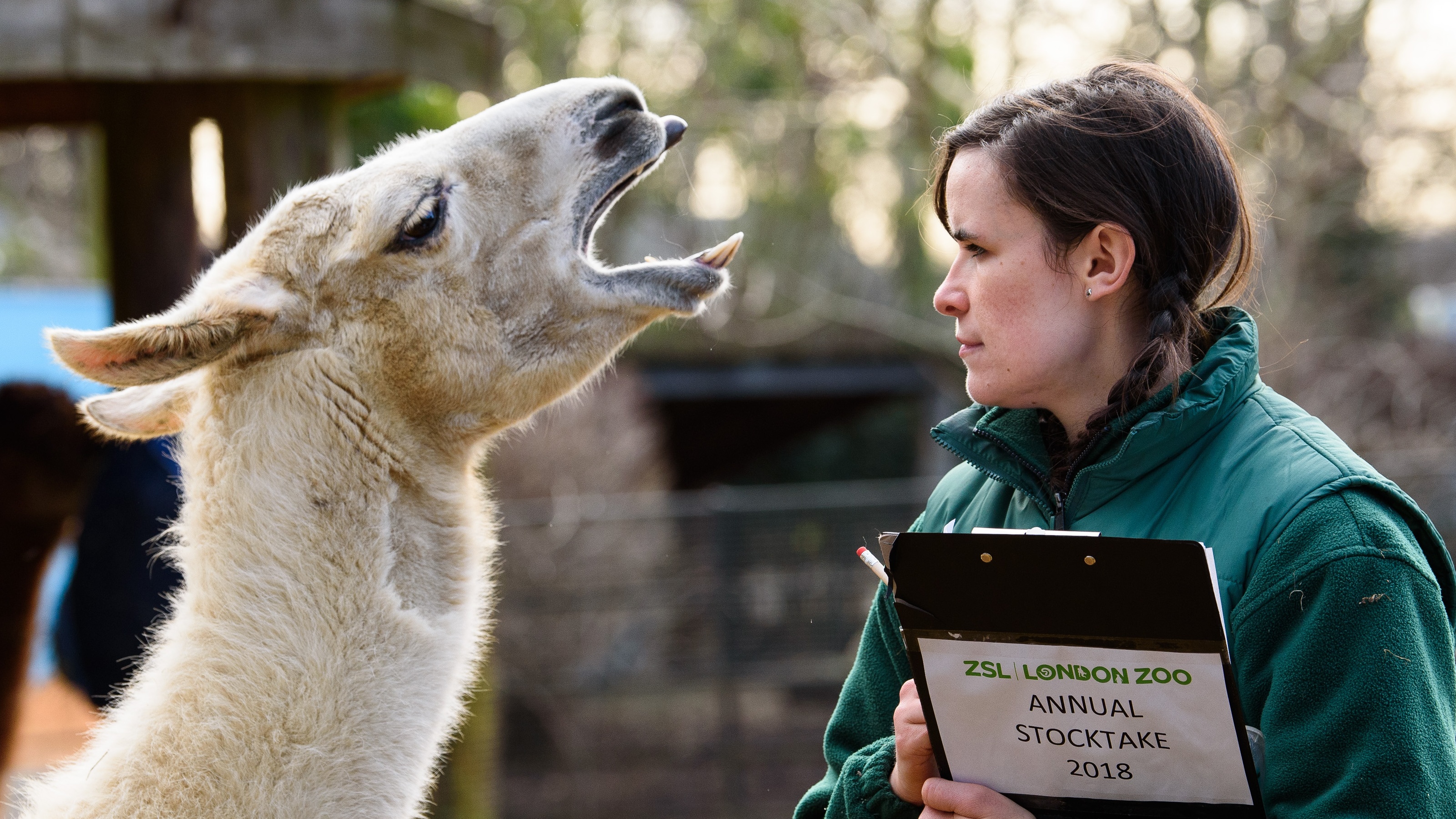Coronavirus: how llama blood could save seriously ill Covid patients
Tests show that antibodies from the South American camelids can prevent the virus from entering human cells

A free daily email with the biggest news stories of the day – and the best features from TheWeek.com
You are now subscribed
Your newsletter sign-up was successful
Antibodies taken from the blood of llamas can be engineered to target the Covid-19 coronavirus to create a treatment that could save countless lives, new research suggests.
Scientists led by a team from Oxford University have tested the virus-fighting potential of antibodies from Fifi, a llama living in Reading, in laboratory trials.
Transfusions of antibody-rich blood plasma from recovered Covid-19 patients are already being trialled in hospitals across the UK, “but the new findings herald the prospect of a more potent and easily available treatment”, The Telegraph reports.
The Week
Escape your echo chamber. Get the facts behind the news, plus analysis from multiple perspectives.

Sign up for The Week's Free Newsletters
From our morning news briefing to a weekly Good News Newsletter, get the best of The Week delivered directly to your inbox.
From our morning news briefing to a weekly Good News Newsletter, get the best of The Week delivered directly to your inbox.
Llamas, camels and alpacas “naturally produce quantities of small antibodies with a simple structure, meaning they can be turned into nanobodies”, the newspaper explains. The researchers found that these nanobodies bind tightly to the spike protein of Sars-CoV-2, the virus that causes Covid-19, which blocks and prevents the viral invader from entering human cells.
The team behind the study - outlined in a newly published paper in the journal Nature - hope that “llama-derived nanobodies could eventually be developed as a treatment for humans struck down with a severe case of Covid-19”, says the Daily Mail.
However, the research is still in a very early stage, with “academics at the Rosalind Franklin Institute at Oxford University condensing a process which would normally take almost a year into just 12 weeks”, the newspaper adds.
Study leader James Naismith, a professor of structural biology and director of the institute, said that the “nanobodies have the potential to be used in a similar way to convalescent serum, effectively stopping progression of the virus in patients who are ill”.
A free daily email with the biggest news stories of the day – and the best features from TheWeek.com
Joe Evans is the world news editor at TheWeek.co.uk. He joined the team in 2019 and held roles including deputy news editor and acting news editor before moving into his current position in early 2021. He is a regular panellist on The Week Unwrapped podcast, discussing politics and foreign affairs.
Before joining The Week, he worked as a freelance journalist covering the UK and Ireland for German newspapers and magazines. A series of features on Brexit and the Irish border got him nominated for the Hostwriter Prize in 2019. Prior to settling down in London, he lived and worked in Cambodia, where he ran communications for a non-governmental organisation and worked as a journalist covering Southeast Asia. He has a master’s degree in journalism from City, University of London, and before that studied English Literature at the University of Manchester.
-
 6 exquisite homes with vast acreage
6 exquisite homes with vast acreageFeature Featuring an off-the-grid contemporary home in New Mexico and lakefront farmhouse in Massachusetts
-
 Film reviews: ‘Wuthering Heights,’ ‘Good Luck, Have Fun, Don’t Die,’ and ‘Sirat’
Film reviews: ‘Wuthering Heights,’ ‘Good Luck, Have Fun, Don’t Die,’ and ‘Sirat’Feature An inconvenient love torments a would-be couple, a gonzo time traveler seeks to save humanity from AI, and a father’s desperate search goes deeply sideways
-
 Political cartoons for February 16
Political cartoons for February 16Cartoons Monday’s political cartoons include President's Day, a valentine from the Epstein files, and more
-
 A Nipah virus outbreak in India has brought back Covid-era surveillance
A Nipah virus outbreak in India has brought back Covid-era surveillanceUnder the radar The disease can spread through animals and humans
-
 Trump HHS slashes advised child vaccinations
Trump HHS slashes advised child vaccinationsSpeed Read In a widely condemned move, the CDC will now recommend that children get vaccinated against 11 communicable diseases, not 17
-
 A fentanyl vaccine may be on the horizon
A fentanyl vaccine may be on the horizonUnder the radar Taking a serious jab at the opioid epidemic
-
 Health: Will Kennedy dismantle U.S. immunization policy?
Health: Will Kennedy dismantle U.S. immunization policy?Feature ‘America’s vaccine playbook is being rewritten by people who don’t believe in them’
-
 How dangerous is the ‘K’ strain super-flu?
How dangerous is the ‘K’ strain super-flu?The Explainer Surge in cases of new variant H3N2 flu in UK and around the world
-
 Vaccine critic quietly named CDC’s No. 2 official
Vaccine critic quietly named CDC’s No. 2 officialSpeed Read Dr. Ralph Abraham joins another prominent vaccine critic, HHS Secretary Robert F. Kennedy Jr.
-
 This flu season could be worse than usual
This flu season could be worse than usualIn the spotlight A new subvariant is infecting several countries
-
 Covid-19 mRNA vaccines could help fight cancer
Covid-19 mRNA vaccines could help fight cancerUnder the radar They boost the immune system